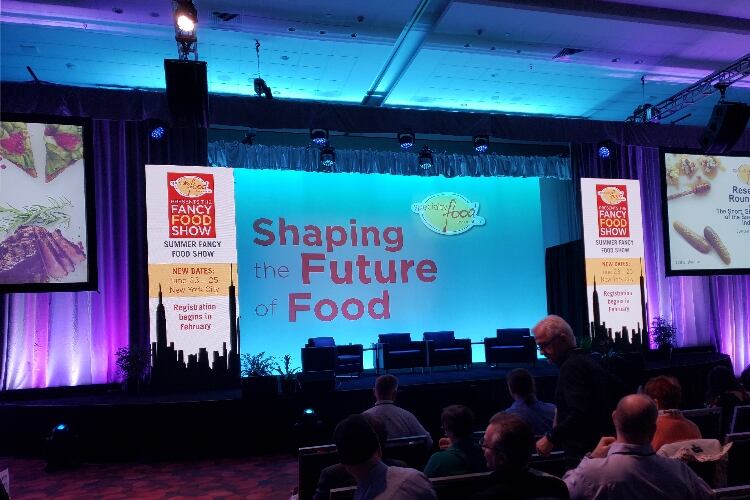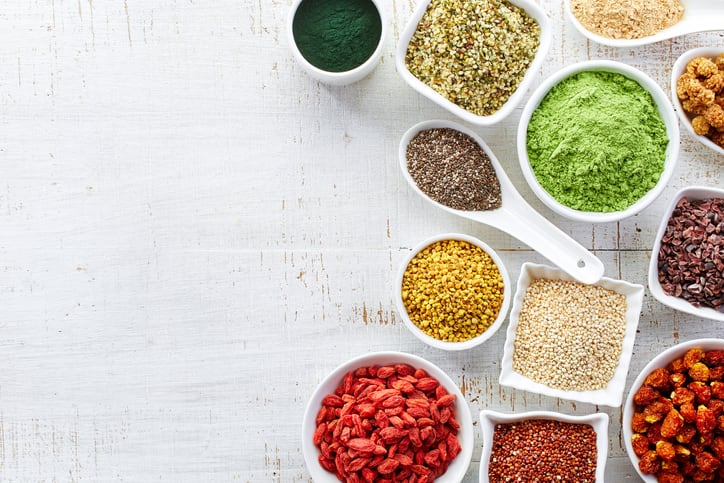In the specialty category, beverages are moving at a fast pace in terms of activity and innovation, with growth share faster in drinks than food items.
Four key reasons to buy specialty products
The youngest generation aging into adults was born between 1995-2007, referred to by several names like Gen Z or the iGen. They follow the millennial generation, born between 1981-1994.
Consumer research center Mintel surveyed the 18-23 year old age range of gen Z for the first time in early 2018, gaining insight into their purchasing behavior when it comes to specialty food and drink. In collaboration with the Specialty Food Association, Mintel presented on the future of food at the Winter Fancy Food Show in San Francisco this month.
According to its research, all generations try specialty foods for the same reasons: taste, quality, ethnic experience and peace of mind. Despite different levels of commitment, consumers of all ages are drawn in the same way.
But the younger generations are certainly leading the charge, with 79% of gen Z surveyed saying they buy specialty CPGs, compared to 67% of millennials, 65% of gen X and 60% of baby boomers. In 2016, 78% of millennials were buying specialty, compared to 61% of gen X and 44% of baby boomers.
David Lockwood of Mintel reported that this month’s survey results were recently tabulated, and the numbers ‘jump up considerably,’ about 9% or 10% for the millennial, gen X and baby boomers, with gen Z decreasing a bit. He referred to it as a growth year, and not surprising.
Experiential shopping
Those in the industry are expecting younger generations to be more adventurous in buying specialty foods. Young people want to buy local and small, which is turning out to be one of the greatest opportunities in the specialty market.
Lockwood explained that past generations have talked this language, but not really lived it. They were willing to sacrifice such values for affordability. But consumers in their 20s and 30s are now willing to spend money for quality products found locally, despite their reliance on digital convenience.
They demand a different level of consumer experience when shopping brick-and mortar, and the ‘groceraunt’ is driving grocery stores growth. One of the biggest challenges facing specialty is deciding where to invest to play to the younger generations - kiosks that allow them to buy more ‘groceraunt’ type products, or into digital?
Even in the age of Amazon and grocery ecommerce, online sales of specialty food and drinks only account for 2% of the category at $2bn. It is growing faster than any other area, but still remains very small.
Specialty is an industry of small businesses, so it is often a big investment to delve into online sales. Companies struggle with trying to fit products into new packaging that works for online and safe, shatter-proof shipping.
There is also the issue of experiential buying, and what is lost when products live online. Digital sales lose the experience of in-person buying, which many businesses depend on for customer interaction and understanding.
Because the specialty industry is growing so quickly, brands are finding it difficult to keep up. According to Lockwood, if a company is growing at an average specialty rate, it is a fairly fast pace compared to conventional brands. The company is probably already ‘running flat out’ to accommodate that, making the chance of adding successful online sales slim.
Serial dieting
Adding to the pressure in specialty is the tendency for millennials and gen Z to engage in short, frequent diets. Food trends like gluten-free, paleo, keto, Whole 30, low-carb, low-sugar and more are all important for food innovators and the rise in specific diet marketing.
Lockwood believes that this is “changing everything about the way we thought about and developed products for and marketed to diets.”
Young people change their mind so often that they don’t usually stick with these trends long enough to see results, going through a pattern of ‘serial dieting’ and questioning the validity of modern diet culture as opposed to ‘lifestyle changes.’
In comparison, gen X and baby boomers report that they have tried approximately 3.5 diets in the past year and an average of 4.5 in their lifetime.
A separate survey of adults 18+ found that 29% are totally committed to following a low-sugar diet, 28% to a high-protein diet, 26% to a low-carb diet and 25% to an all-natural or organic diet.
And because specialty tends to be a snacking business, there is room for growth in snacks and beverages. Lockwood reported that beverages are moving at a quick pace in terms of activity and innovation, with growth share faster in drinks than food items.



